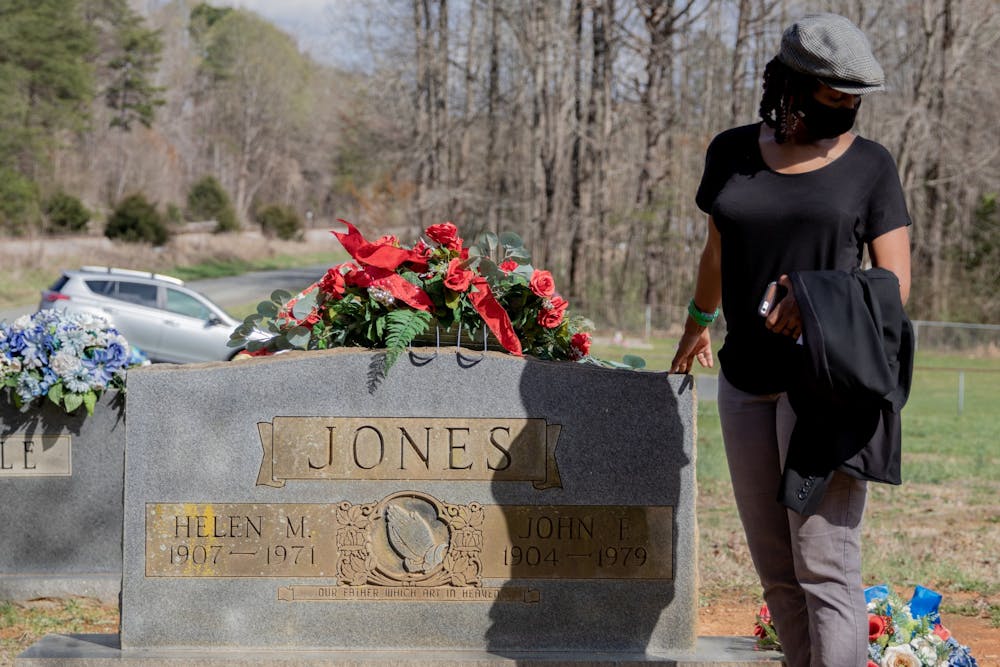The Efland-Cheeks community raised concerns over the marginalization and erasure of Black voices in community matters in a letter, which was read to the Orange County Board of County Commissioners at a March 16 meeting.
The letter was read by LaTarndra Strong, president of the Northern Orange NAACP, and was written by Shontea Smith on behalf of concerned citizens in the community.
Smith, who is also the executive director of United Voices of Efland-Cheeks, said the community asked her to write the letter because of concerns over issues like income disparities and employment opportunities.
“All of this development is happening around us, but there is still no jobs for people in the community to access,” she said.
Smith said she has been a part of the Efland-Cheeks community for 42 years, and her family has been for 150 years. She said a lot of community members used to work in the manufacturing industry, but those jobs have largely disappeared. When those jobs left, they were replaced with lower-wage retail and food service jobs, the letter read, which has led to drug issues in the area.
Strong said she thinks the community has been neglected in terms of economic development.
“So often, we think about Efland-Cheeks as Efland, and the Cheeks people get left behind,” she said. “I just want people to explore some opportunities specific to the people in Cheeks, and to just think about the people in Cheeks.”
The letter also raised concerns over income inequality. Orange County is one of the wealthiest counties in North Carolina, with an average wage of $61,130, but in the Cheeks Township, over 32 percent of residents earn less than $30,000. Additionally, Black residents make up almost 20 percent of the area’s population but are overrepresented in indicators of poverty, like food stamps.
The letter questioned if the commissioners had walked the streets of the community, and expressed disappointment in how the board has handled issues in the community. It also noted that the ancestors of many Black community members had lived in the area since the end of slavery.




